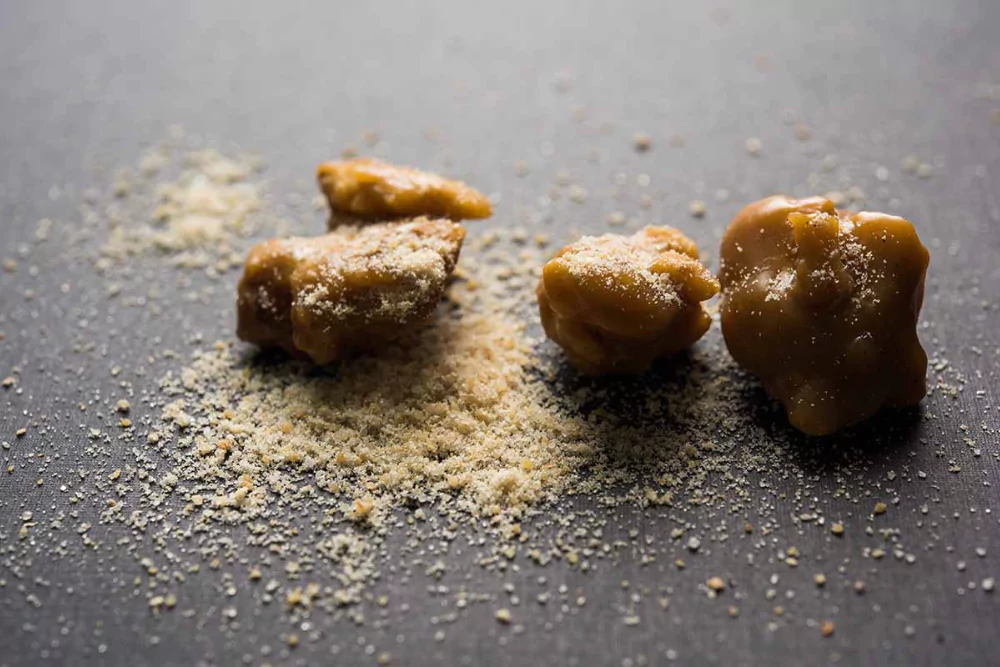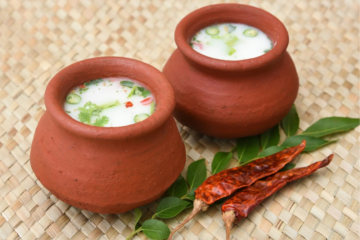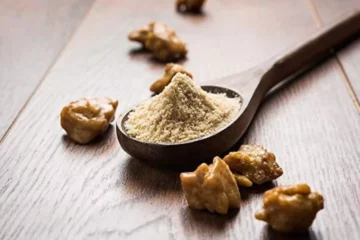1. How does hing contribute to better sleep, and what are its benefits?
Short Answer: Hing promotes better sleep by improving digestion, reducing bloating, and calming the nervous system—leading to deeper relaxation.
Detailed Answer:
- Enhances Digestion: Hing helps reduce gas and indigestion, which can disrupt sleep. A calm digestive system supports a peaceful night’s rest.
- Anti-inflammatory Properties: Its natural compounds ease inflammation in the gut and body, reducing discomfort and restlessness at night.
- Relieves Anxiety: Hing has mild sedative-like properties that help reduce stress and calm the nerves, encouraging sleepiness.
- Balances Vata Dosha: According to Ayurveda, hing balances the ‘Vata’ dosha, which is responsible for restlessness and insomnia.
- Improves Sleep Quality: With reduced discomfort and anxiety, hing indirectly supports longer, uninterrupted sleep cycles.
2. What are some simple hing-based recipes to relax before bedtime?
Short Answer: Hing water, hing milk, and hing-infused herbal tea are soothing bedtime recipes that aid relaxation and promote better sleep.
Detailed Answer:
- Hing Water: Boil 1 glass of water with a pinch of hing and drink it warm 30 minutes before bed.
- Relieves bloating and gas.
- Supports a calm stomach for uninterrupted sleep.
- Hing Milk: Warm a cup of milk, add a pinch of hing, turmeric, and honey.
- Combines the benefits of hing and tryptophan from milk.
- Helps in muscle relaxation and nervous system calming.
- Hing Herbal Tea: Add hing to chamomile or tulsi tea.
- Supports digestion and anxiety relief.
- Perfect for winding down after dinner.
- Hing Ghee Mix: Mix 1 tsp ghee with a pinch of hing and jaggery. Consume post-dinner.
- Ayurvedic approach to nourish and calm the body before sleep.
3. Can hing be combined with other natural sleep aids, like milk or herbs?
Short Answer: Yes, hing can be safely combined with milk, ghee, honey, and herbs like chamomile and ashwagandha for enhanced sleep benefits.
Detailed Answer:
- Milk + Hing: Helps promote serotonin production due to tryptophan in milk, with hing aiding digestion.
- Hing + Ashwagandha: Improves stress response and digestion simultaneously—ideal for people with insomnia due to anxiety or gut issues.
- Chamomile + Hing: Enhances the sedative effects of chamomile and makes tea more gut-friendly.
- Honey + Hing: This natural sweetener aids in tryptophan absorption while hing ensures no gastric disturbances at night.
- Ghee + Hing: A classic Ayurvedic combination to ground the body, soothe the digestive tract, and calm the nerves.
Recommended Combinations Table:
| Combination | Purpose | Best Time |
|---|---|---|
| Milk + Hing + Turmeric | Promotes sleep and reduces inflammation | 30 minutes before bed |
| Hing + Ashwagandha | Reduces stress, enhances gut health | After dinner |
| Chamomile Tea + Hing | Relieves anxiety and supports digestion | 1 hour before bed |
4. Is there a best time to consume hing-infused food for sleep benefits?
Short Answer: The best time to consume hing for sleep is after dinner or 30–60 minutes before bedtime, allowing it to calm the gut and nerves.
Detailed Answer:
- Post-Dinner (Within 30 Minutes): Adding hing to your evening meal or taking hing water post-dinner supports digestion and prevents bloating overnight.
- 30–60 Minutes Before Bed: Recipes like hing milk or tea help the body relax by soothing the nervous system and encouraging melatonin release.
- Avoid Consuming Hing on Empty Stomach at Night: As it may increase acidity in sensitive individuals.
- Stick to Warm Recipes: Hing-infused warm liquids offer better absorption and calming effects than cold or raw preparations.
5. Are there any side effects of using hing regularly for sleep support?
Short Answer: While hing is generally safe, excessive consumption may lead to digestive irritation, allergies, or a drop in blood pressure in sensitive individuals.
Detailed Answer:
- Digestive Issues: Overuse can cause loose stools or acid reflux in some people.
- Blood Pressure Concerns: Hing has hypotensive effects; it may reduce blood pressure if consumed in high amounts daily.
- Allergic Reactions: Rare, but can include rashes or shortness of breath in those allergic to ferula species.
- Pregnancy Caution: Excessive hing should be avoided during pregnancy without doctor consultation.
- Moderation is Key: A pinch a day is sufficient for sleep-related benefits without causing harm.
Conclusion
Hing is a traditional spice with remarkable digestive and calming properties that make it a perfect bedtime companion. From hing water to herbal teas, incorporating this powerful ingredient in simple recipes can significantly improve your sleep quality. However, like any natural remedy, moderation is crucial.
- Use hing with soothing ingredients like milk, honey, or herbs for best results.
- Consume hing-based drinks 30–60 minutes before sleep to maximize its calming effects.
- Always start with a pinch and observe how your body responds before regular use.
Try these sleep-friendly hing recipes tonight and experience the difference naturally with Hingwala.





